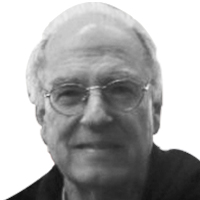The spirit of mass protest on Tiananmen Square in Beijing lives on, in a movement to resurrect the memories of those glorious weeks 30 years ago when democracy—real democracy—seemed possible at last in the People’s Republic of China.
I remember that time clearly. I was on Tiananmen Square as small protests grew into massive outpourings in which several hundred thousand people filled the square before an image of the Statue of Liberty in New York.
People freely told me they derived much of their inspiration, or at least their information, from listening to the BBC and the Voice of America. Only that way could they know what was going on in the world while China’s own state propaganda machine, on the pages of the People’s Daily and in radio and TV broadcasts, did its best to keep them ill-informed or misinformed.
The date June 4, 1989, is remembered because that is the day that tanks rolled into Tiananmen Square and the dream of democracy exploded in the slaughter of at least 1,000 people, perhaps many more.
Ever since, Chinese authorities have been trying to expunge the memory, to delete, to erase all references to the massacre.
At the same time, pro-democracy adherents keep the memory alive in highly censored references, in gatherings outside China, in literature and news reports. Always they have to find ways to go beyond the reach of censors who form a kind of thought police, vigilantly spotting anything that might be seen as negative or critical of the regime, including the ruling Communist Party and the central government, all under President Xi Jinping.
The Chinese economy has no doubt expanded immensely since those dark days when authorities, in the weeks after driving the protests from Tiananmen Square, rooted out their leaders, activists, and hotheads who had dared oppose them. Some were imprisoned, others executed after show trials in which they were accused, and inevitably found guilty, of perpetrating crimes against the established order.
Incredibly, China during the weeks of protest and then the round-up and killing of dissidents was very much under the influence of Deng Xiaoping, who had instituted much needed economic reforms and remained in many ways the country’s paramount leader, even though the Communist Party was deeply divided.
Deng’s instincts did not extend to defense of the protesters, in spite of the fact they were motivated to a large degree by the reformist spirit that he had espoused. Deng’s innermost thoughts may be difficult to fathom, but he was able within two or three years to go on promoting economic reform while political freedom was harshly repressed.
China today enjoys an impression of vibrant capitalism as spurred on by Deng while suppressing all signs of a renascent democracy movement. Authorities have made it a special point to do their utmost to eradicate the spirit of Tiananmen, to ban mention of what happened there and to weed out abstruse references. Code words like May 35, for May 31 plus four, that is, June 4, and VIIV, Roman numerals for the sixth month, VI, and the fourth day, IV, June 4, are banned.
If anything, three decades after Tiananmen, China under President Xi has reverted to the dictatorship of a bygone era before the limited freedom propounded by Deng. China’s economy, capitalist in many respects, is clearly under the thumb of Xi and the Communist Party. So too China’s growing military power is seen most dramatically in construction of bases on islets and reefs in the South China Sea and an increase in military strength on the mainland.
The rise of an aggressive military establishment, unfettered by the niceties of democratic reform, has quite alarming implications for the countries on China’s periphery, as well as the U.S.. However, China’s trade surplus with the U.S. and most of the rest of the world is so enormous that Xi has no desire to kill the goose that has been laying all those golden eggs.
President Donald Trump wages a war of tariffs, hoping to bring about a decrease in imports from China that he believes is hurting U.S. industry. Xi, defending China’s position, puts through retaliatory tariffs but is not going to risk a war with a country that is supporting its economy.
China’s burgeoning strength means that it has huge influence over North Korea, which relies on China for oil, foodstuffs and other products despite U.S. and U.N. sanctions. At the same time, mainland China remains South Korea’s biggest trading partner though the South is one of the few places, along with Taiwan, island home of the anti-Communist “nationalist” Chinese regime, with which Beijing has a trade deficit.
The centrally directed policies of Xi Jinping show the failure of the Tiananmen protest. Three decades later, Communist dictatorship is far stronger, more centrally directed, than it was when tens of thousands carried on night after night before an image of the Statue of Liberty that shone too briefly as a beacon for the world.







